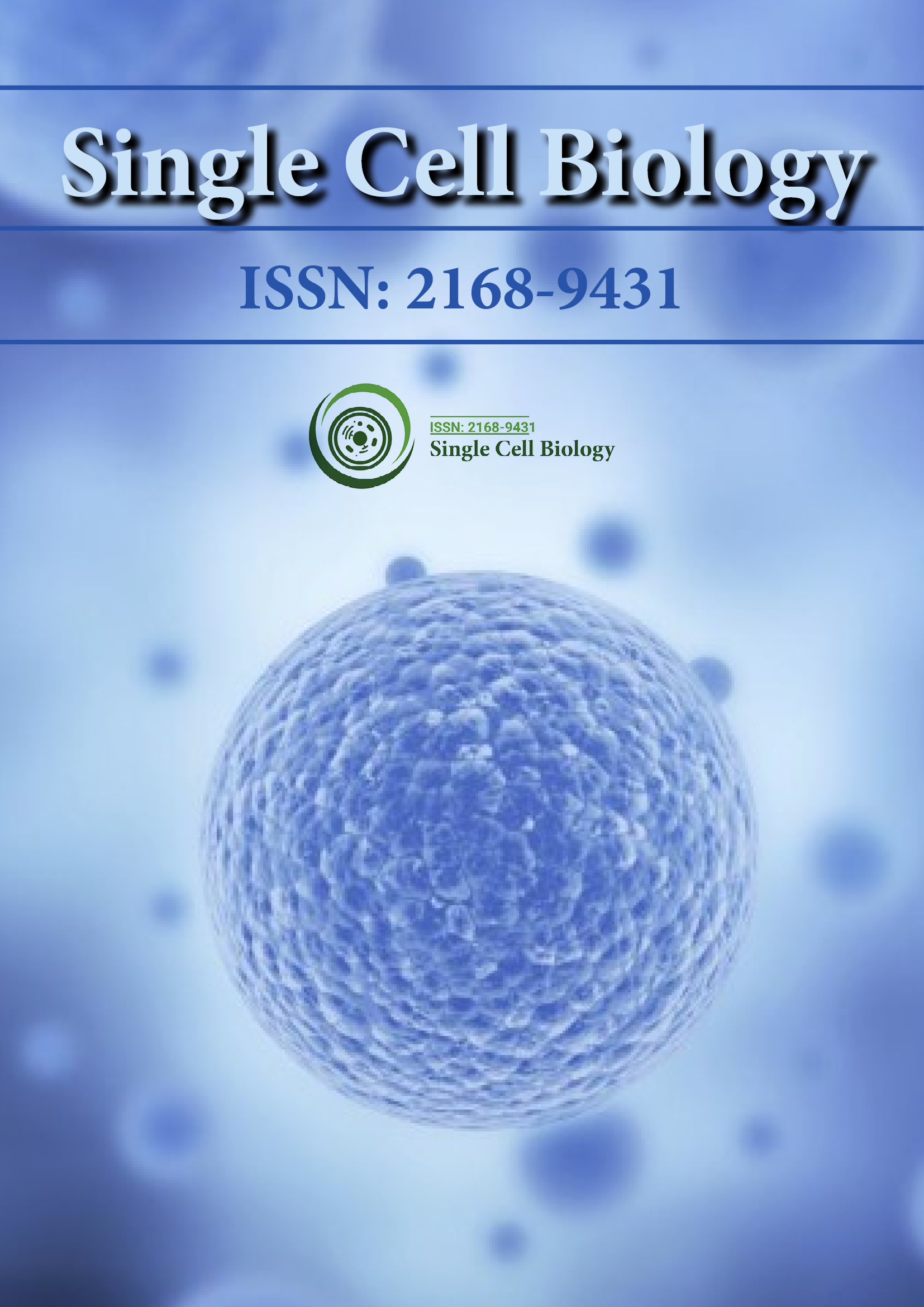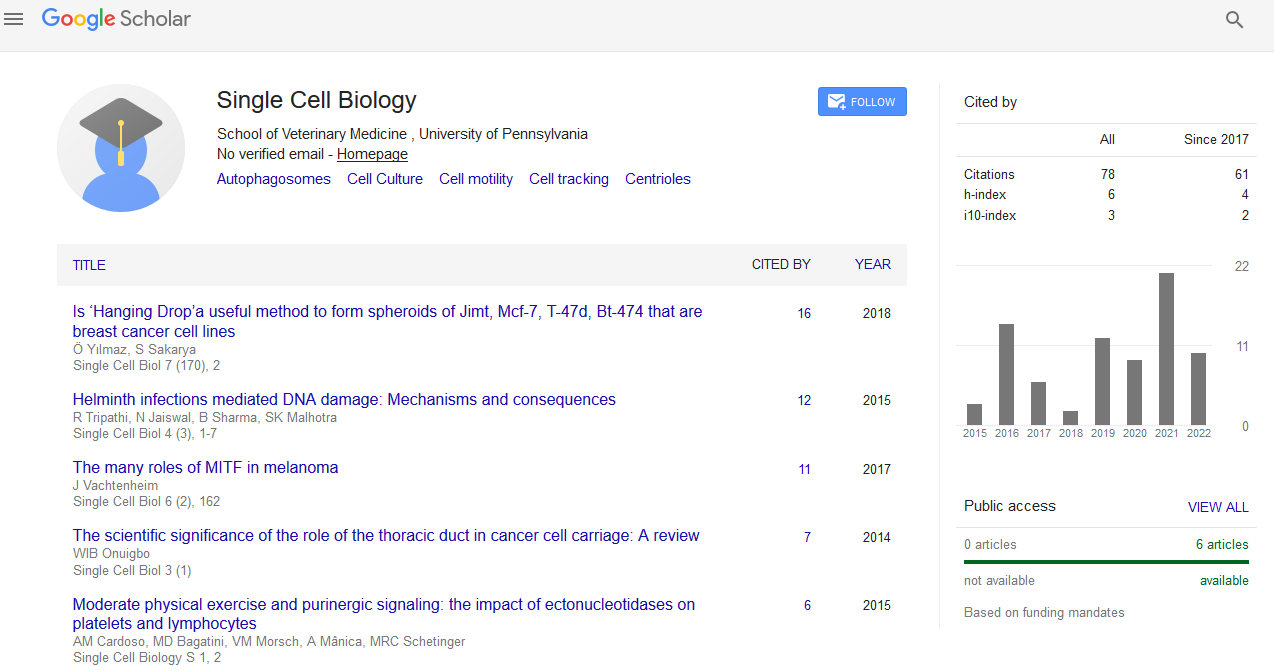PMC/PubMed Indexed Articles
Indexed In
- ResearchBible
- CiteFactor
- RefSeek
- Hamdard University
- EBSCO A-Z
- Publons
- Geneva Foundation for Medical Education and Research
- Euro Pub
- Google Scholar
Useful Links
Share This Page
Journal Flyer

Open Access Journals
- Agri and Aquaculture
- Biochemistry
- Bioinformatics & Systems Biology
- Business & Management
- Chemistry
- Clinical Sciences
- Engineering
- Food & Nutrition
- General Science
- Genetics & Molecular Biology
- Immunology & Microbiology
- Medical Sciences
- Neuroscience & Psychology
- Nursing & Health Care
- Pharmaceutical Sciences
Abstract
Buffered vs. Non-Buffered Aliphatic Fatty Acids and their Anti-Proliferative Effects in Human Tumor Cell Lines
Background: Tumor cells generate a micro-acidic environment due to increased fermentative metabolism and poor perfusion. It is believed that this action is responsible for creating a lower pH environment which promotes invasive tumor growth in primary and metastatic cancers, through a form of acid-induced micro-environmental remodeling. Dietary fats, both saturated and unsaturated, have profound impacts on the viability and growth of neoplastic cells. This study examines the impact that saturated and unsaturated fatty acids, both alkalized and nonalkalized, have on the viability and growth of various neoplastic cell lines.
Methods: In this study, the potential anti-viability and antiproliferative effects of both saturated, and an unsaturated, fatty acids, when introduced as buffered (NaHCO3), and non buffered formulations, were investigated in a comparative fashion in a panel of tumor cell lines.
Results: We show that both buffered and non-buffered fatty acids, exerted inhibition of their proliferative activity and had a negative impact on cell viability in a concentration-dependent manner. Buffered fatty acids had a greater negative impact on all tumor cell lines.
Conclusions: Findings indicate that the environment, as well as the type of fatty acid to which the neoplastic cell line was exposed, were both important predictors of antiproliferative effects.

